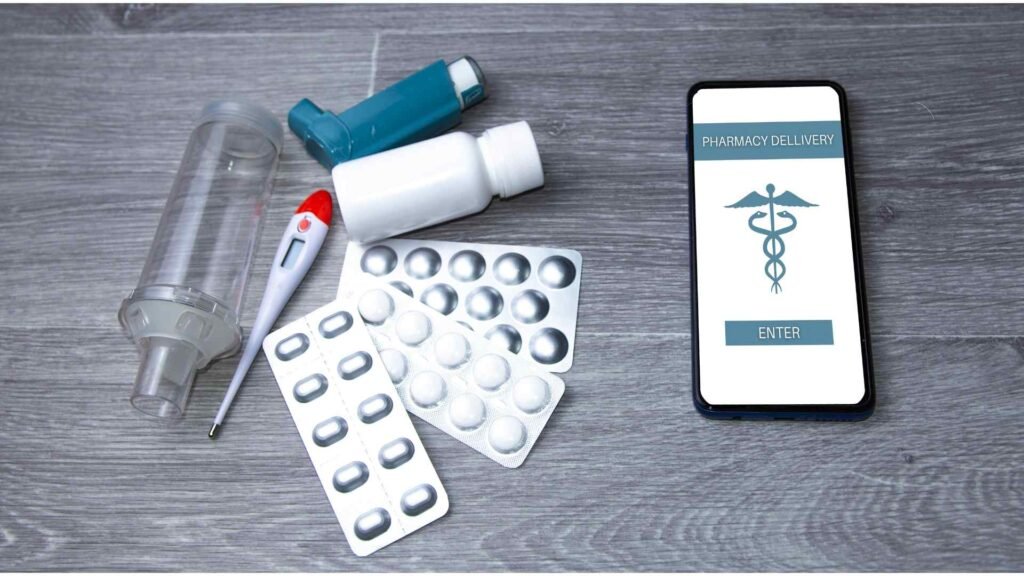Technology is like that friend who always knows the best shortcuts in today’s world. When it comes to healthcare, these tech-savvy pals are empowering women to take control of their health like never before. Historically, women have faced numerous challenges in the healthcare sector. However, technological advancements are now playing a pivotal role in bridging the gap and empowering women. From telemedicine to AI-driven diagnostics, the healthcare landscape is evolving rapidly, offering innovative solutions to enhance access, improve affordability, and increase awareness.
The Role of Technology in Empowering Women

Technology is a game-changer in the healthcare sector, particularly for women. It provides innovative solutions that enhance access, improve affordability, and increase awareness.
1. Mobile Health Apps: Your Health in Your Pocket

Imagine having a doctor in your pocket. No, not a tiny doctor, but a mobile health app! These apps are empowering women by putting healthcare management directly in their hands. They can track everything, from menstrual cycles to managing pregnancy and mental health. Apps like Clue and Flo are helping women understand their bodies better and make informed decisions about their health. They provide timely reminders, health tips, and direct communication with healthcare providers. It’s like having a personal health assistant who never takes a day off.
2. Telemedicine: Doctor’s Appointments in Pajamas
Gone are the days of sitting in a waiting room, flipping through outdated magazines. Telemedicine has revolutionized healthcare by providing remote access to medical professionals. With telemedicine, women can now have virtual consultations with doctors from the comfort of their own homes. This is especially beneficial for women in rural areas who might not have easy access to healthcare facilities. They can now consult doctors without leaving their homes. Plus, who doesn’t love the idea of seeing a doctor while wearing pajamas? This technology is particularly advantageous for pregnant women and those with chronic illnesses, ensuring they receive the care they need without the hassle of travel.
3. Wearable Tech: Health Monitoring on the Go
Wearable technology like fitness trackers and smartwatches is not just for counting steps. They can monitor heart rates, and sleep patterns, and even detect irregularities that might need medical attention. These devices help women keep track of their health in real time and make informed decisions. Companies like Fitbit and Apple are leading the charge in making health monitoring stylish and accessible.
4. AI and Machine Learning: The Future is Here
Artificial Intelligence (AI) and machine learning are revolutionizing healthcare by enhancing diagnostic accuracy and personalizing treatment. For instance, AI-enabled ultrasounds can detect pregnancy complications early, ensuring timely intervention. AI algorithms analyze medical data and identify patterns that human doctors might miss, speeding up the diagnostic process and ensuring timely, accurate diagnoses.
Additionally, AI can tailor treatment plans based on individual health data, leading to more effective and personalized care. For women with complex health conditions, this technology offers significant advantages. Overall, AI and machine learning are making healthcare more precise and personalized, empowering women to get the care they need when they need it.
5. Online Support Communities: Because Sharing is Caring
Sometimes, the best support comes from people who understand what you’re going through. Online support communities provide a platform for women to share their experiences, seek advice, and offer support. Websites and forums dedicated to women’s health issues are creating a sense of community and empowerment.
6. FemTech: The New Frontier
FemTech, short for female technology, is a rapidly growing industry focused on creating products and services that cater specifically to women’s health needs. From fertility tracking devices to wearable breast pumps, FemTech is making it easier for women to manage their health and well-being. It’s like having a tech-savvy best friend who’s always looking out for you.
7. Blockchain Technology
Blockchain ensures that medical records are securely stored and easily accessible. Women can have control over their health data, sharing it with healthcare providers as needed without the risk of unauthorized access.
Blockchain can track the supply chain of medicines and medical supplies, ensuring their authenticity and quality. This transparency helps women trust the treatments they receive.
8. Virtual Reality (VR) and Augmented Reality (AR)
VR and AR provide immersive training experiences for healthcare professionals. This technology is used to educate medical staff on women’s health issues, enhancing their skills and knowledge. VR and AR can be used in pain management and therapeutic settings. They offer non-pharmacological pain relief methods, which are particularly beneficial for women during childbirth or chronic pain conditions.
Breaking Barriers to Technology
Accessibility
Technological advancements make healthcare more accessible. Women in remote or underserved areas can access medical consultations, health information, and emergency services through digital platforms.
Affordability
Technology can reduce healthcare costs by minimizing the need for in-person visits and expensive treatments. Telemedicine, for instance, cuts down on travel expenses and time off work, making healthcare more affordable.
Education and Awareness
Digital platforms provide educational resources and raise awareness about health issues. Women can access information on preventive care, symptoms of diseases, and healthy lifestyle choices.
Technology is not just changing the way we live; it’s changing the way we take care of ourselves. By empowering women with better access to healthcare, these technologies are helping to create a healthier, happier world. So, here’s to technology—the ultimate wingman in the quest for better health!
